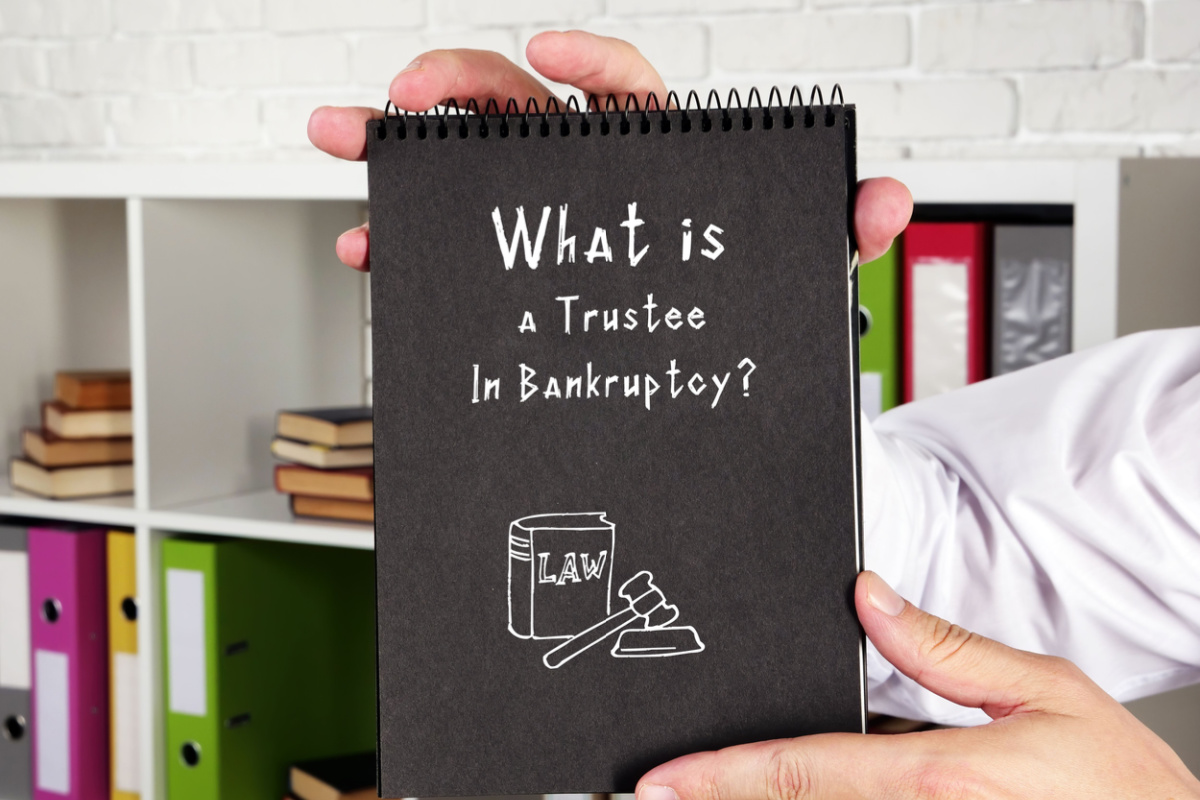




A bankruptcy trustee plays a significant role in both Chapter 7 and Chapter 13 bankruptcy cases. Appointed by the court, a trustee essentially serves as an impartial administrator whose job is to manage assets and oversee payments to creditors. In Chapter 7 cases, a trustee is responsible for gathering and liquidating non-exempt assets to repay debts. On the other hand, in Chapter 13 cases, a trustee organizes a payment plan and ensures regular disbursements to creditors over a period of three to five years.
Beyond asset management, a trustee evaluates filed claims, verifies the legitimacy of financial documents, and may even conduct investigations if fraud is suspected. Furthermore, a trustee must provide adequate notice to creditors, facilitate meetings, and oversee legal processes to ensure smooth proceedings.
In Chapter 7 bankruptcy proceedings, a trustee has several distinct roles to play. One of their primary tasks is the identification and inventory of the debtor’s non-exempt assets. After locating these assets, the trustee oversees liquidating them, turning physical assets into cash to repay creditors.
Another function involves the evaluation and verification of the debtor’s financial documents. Scrutinizing records, ensuring transparency and accuracy in the paperwork submitted. In certain instances, a trustee may even initiate legal actions to reclaim transferred properties that can be considered part of the bankruptcy estate.
A trustee also coordinates what is commonly known as the “341 meeting,” or the Meeting of Creditors. During this gathering, creditors have an opportunity to question the debtor about financial status and asset distribution.
Moreover, the trustee reviews all claims submitted by creditors, ensuring their validity and sorting them by priority. Once assets are liquidated, the trustee disburses funds to creditors in an organized manner, abiding by federal laws governing asset distribution.
In Chapter 13 bankruptcy cases, a trustee serves a role different from the one in Chapter 7. Instead of liquidating assets, a Chapter 13 trustee helps in managing and overseeing a payment plan. Once a court approves such a plan, the trustee collects monthly payments from the debtor and distributes these funds to creditors according to the approved schedule.
One of a trustee’s initial tasks is to review the proposed payment plan and financial documents to ensure feasibility and fairness. During the 341 meeting, or Meeting of Creditors, the trustee represents the interests of both creditors and the court, asking pertinent questions to assess the validity and practicality of the repayment plan.
Throughout the duration of the payment plan, which can last three to five years, the trustee monitors compliance. Trustees ensure timely payments and can take action if a debtor fails to meet the obligations outlined in the repayment plan. In instances where modifications to the payment plan become necessary due to changes in the debtor’s financial circumstances, the trustee reviews and may endorse such adjustments.
In a Chapter 13 bankruptcy, a trustee acts as a mediator between the debtor and creditors, serving multiple roles to ensure the process runs smoothly. Unlike in Chapter 7, where the trustee’s main job is to liquidate non-exempt assets, a Chapter 13 trustee focuses on overseeing a structured repayment plan.
From the start, the trustee reviews the proposed repayment plan for its suitability, fairness, and legality. The trustee’s scrutiny is particularly evident during the 341 meeting or Meeting of Creditors. Here, the trustee asks questions to validate the debtor’s financial information and the viability of the repayment plan.
Once the court approves the repayment plan, the trustee becomes responsible for collecting monthly payments from the debtor. These funds are then distributed to creditors in accordance with the stipulations of the approved plan. Throughout the three-to-five-year duration of the repayment schedule, the trustee monitors the debtor’s compliance, ensuring payments are made on time.
Should the debtor experience changes in financial circumstances necessitating alterations to the repayment plan, the trustee is involved in reviewing and potentially endorsing these adjustments. In essence, a Chapter 13 trustee is pivotal in facilitating, monitoring, and executing the repayment plan, making them a key player in the success of a Chapter 13 bankruptcy case.

In bankruptcy proceedings, one of a trustee’s central roles is the disbursement of assets. Depending on the type of bankruptcy filed—Chapter 7 or Chapter 13—the nature of this duty can vary. In a Chapter 7 case, the trustee liquidates non-exempt assets and distributes the resulting funds to creditors. Assets may include anything from property and vehicles to financial accounts, all of which are converted into cash. After liquidation, the trustee must adhere to a specific hierarchy in repaying creditors, giving priority to secured debts like mortgages and car loans over unsecured debts such as credit cards.
In a Chapter 13 bankruptcy, the trustee manages a different kind of asset disbursement, one based on a court-approved repayment plan. Here, the debtor makes regular payments to the trustee, who in turn allocates these funds to creditors based on the terms outlined in the repayment plan. The trustee ensures each creditor receives its due share over the life of the three-to-five-year plan.
In any bankruptcy case, creditors submit claims to indicate how much they are owed by the debtor. A trustee is responsible for evaluating these claims to determine their validity, amount, and priority. Each claim undergoes thorough scrutiny to ensure it meets legal requirements. Fraudulent or inaccurate claims can result in penalties, making the trustee’s role in evaluation quite significant.
Firstly, a trustee reviews the form and content of each claim, checking for completeness and compliance with legal norms. Documents supporting the claim, such as invoices, contracts, or promissory notes, are examined to confirm the debt’s existence and amount.
Secondly, a trustee classifies the types of claims filed. Secured claims, like those backed by collateral, generally receive priority over unsecured claims, such as credit card debt. Federal law outlines a specific order in which claims must be paid, and the trustee ensures adherence to these rules during disbursement.
Lastly, a trustee may object to claims considered improper or inaccurate. Objections can be due to various reasons, including incorrect amounts, lack of supporting documentation, or claims filed past the legally acceptable deadline. Evaluating claims is an intricate process requiring both legal expertise and meticulous attention to detail. A trustee’s role in this process is instrumental in maintaining the integrity and fairness of the bankruptcy proceedings.
Before taking any steps, it’s essential to be well-informed about the bankruptcy process and its implications. If you’re curious about how bankruptcy might impact your retirement funds, the experts at Debt Advisors have a comprehensive guide on bankruptcy’s effect on retirement funds. Additionally, navigating the bankruptcy meeting, commonly referred to as the 341 meeting, is a crucial part of the process. For those in the Kenosha area, you can find specific guidance and local expertise at the Kenosha office of Debt Advisors. This resource can be particularly helpful in understanding the nuances of the process in your locality. Learn more about navigating the bankruptcy 341 meeting to ensure you’re well-prepared. Moreover, it’s essential to understand the difference between bankruptcy and debt settlement. Dive deep into the comparison of bankruptcy vs. debt settlement to make informed decisions.
If you are filing for bankruptcy, contact us or call us at 866-696-6432 today for a free consultation.

Learn about bankruptcy protections, types of bankruptcy, how to get started, what to expect, and who to trust. Filing bankruptcy is the ONLY way to completely eliminate debt. If bankruptcy is right for you, it offers powerful protections that cannot be achieved through alternative solutions such as hardship relief, loans, or debt settlement.